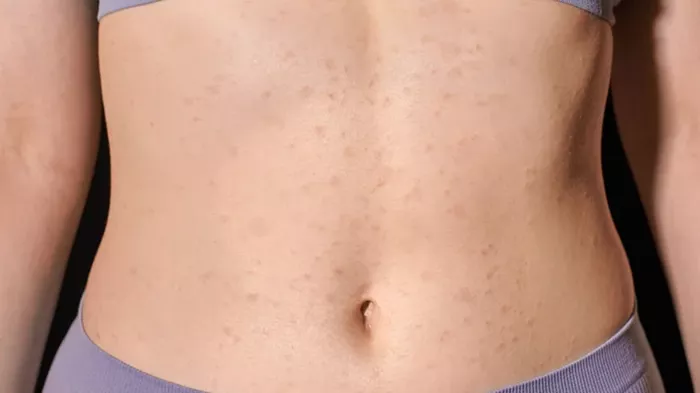Allergy spots, also known as allergic dermatitis or skin rashes, can be both uncomfortable and unsightly. These spots may result from various allergens such as foods, medications, or environmental factors. Effective removal and treatment involve understanding the underlying causes, employing preventive measures, and utilizing appropriate treatments. This article provides an in-depth exploration of how to remove allergy spots from the skin, offering practical tips and comprehensive treatment strategies.
Understanding Allergy Spots
What Are Allergy Spots?
Allergy spots are skin reactions caused by allergens. They can manifest as redness, itching, swelling, and blisters. Common types of allergic skin reactions include:
Contact Dermatitis: Occurs when the skin comes into direct contact with an allergen.
Atopic Dermatitis (Eczema): A chronic condition often linked to genetic factors and environmental triggers.
Hives (Urticaria): Raised, red, itchy welts that appear suddenly and can be triggered by various allergens.
Angioedema: Swelling in the deeper layers of the skin, often around the eyes and lips.
Common Causes of Allergy Spots
Understanding the causes of allergy spots is crucial for effective treatment. Common causes include:
Food Allergies: Certain foods like nuts, shellfish, eggs, and dairy can trigger skin reactions.
Medications: Allergic reactions to medications such as antibiotics and aspirin.
Insect Bites: Bites from insects like mosquitoes, bees, and ants can cause localized allergic reactions.
Environmental Allergens: Pollen, pet dander, dust mites, and mold are common environmental triggers.
Cosmetics and Personal Care Products: Ingredients in soaps, lotions, and makeup can cause contact dermatitis.
Metals: Nickel, often found in jewelry and belt buckles, is a common allergen.
Identifying Allergy Spots
Symptoms and Appearance
Allergy spots can vary in appearance and severity. Key symptoms include:
Redness: Inflamed areas of the skin that may be localized or widespread.
Itching: A persistent urge to scratch, which can worsen the condition.
Swelling: Puffiness around the affected area, sometimes extending to other parts of the body.
Blisters or Vesicles: Fluid-filled bumps that may ooze and crust over.
Dry, Scaly Patches: Often seen in chronic conditions like eczema.
Diagnosing Allergy Spots
Accurate diagnosis is essential for effective treatment. Diagnostic methods include:
Medical History: Discussing symptoms, lifestyle, and potential exposure to allergens with a healthcare provider.
Physical Examination: A thorough examination of the skin to identify the characteristics of the rash.
Allergy Testing: Skin prick tests or blood tests (such as specific IgE tests) to identify specific allergens.
Patch Testing: Applying small amounts of potential allergens to the skin to identify contact dermatitis triggers.
Biopsy: In rare cases, a skin biopsy may be performed to rule out other conditions.
Preventive Measures
Avoiding Known Allergens
The most effective way to prevent allergy spots is to avoid known allergens. Strategies include:
Dietary Changes: Eliminate foods that trigger allergic reactions.
Environmental Controls: Use air purifiers, reduce indoor humidity, and regularly clean to minimize dust and mold.
Hypoallergenic Products: Choose skincare and personal care products labeled as hypoallergenic and free from common irritants.
Protective Clothing: Wear gloves and long sleeves when handling potential allergens such as plants or cleaning agents.
Strengthening the Skin Barrier
Maintaining a healthy skin barrier can prevent allergens from penetrating the skin. Tips include:
Moisturizing: Regular use of emollients and moisturizers to keep the skin hydrated.
Gentle Cleansing: Use mild, fragrance-free cleansers to avoid irritation.
Avoiding Hot Showers: Hot water can strip the skin of natural oils, weakening the skin barrier.
Using Barrier Creams: Especially in occupational settings where exposure to allergens is high.
Boosting Immune Health
A robust immune system can help minimize allergic reactions. Consider the following:
Balanced Diet: Rich in fruits, vegetables, and omega-3 fatty acids to support immune function.
Regular Exercise: Enhances overall health and immune resilience.\Adequate Sleep: Essential for immune system repair and function.
Stress Management: Chronic stress can weaken the immune system, so practices such as meditation, yoga, and deep breathing exercises can be beneficial.
Treatment Strategies
1. Topical Treatments
Topical treatments are often the first line of defense against allergy spots. These include:
Corticosteroid Creams: Reduce inflammation and itching. Available in various strengths, some require a prescription.
Antihistamine Creams: Provide relief from itching and swelling.
Calamine Lotion: Soothes itching and discomfort.
Moisturizers and Emollients: Hydrate the skin and restore the barrier function.
Topical Immunomodulators: Such as tacrolimus and pimecrolimus, useful in treating eczema.
2. Oral Medications
In cases where topical treatments are insufficient, oral medications may be prescribed:
Antihistamines: Such as cetirizine, loratadine, and diphenhydramine to reduce allergic reactions.
Corticosteroids: Prednisone or other oral steroids for severe reactions.
Immunosuppressants: In cases of chronic eczema or severe allergic reactions, medications like cyclosporine may be used.
3. Home Remedies and Natural Treatments
Several home remedies can provide relief from allergy spots:
Oatmeal Baths: Colloidal oatmeal can soothe itching and inflammation.
Aloe Vera: Natural anti-inflammatory and soothing properties.
Coconut Oil: Moisturizes and has anti-inflammatory effects.
Tea Tree Oil: Antiseptic and anti-inflammatory properties, but should be used with caution to avoid irritation.
Cool Compresses: Reduce swelling and soothe the skin.
4. Lifestyle Adjustments
Making certain lifestyle changes can help manage and prevent allergy spots:
Dietary Adjustments: Eliminate food allergens and incorporate anti-inflammatory foods like turmeric and ginger.
Regular Exercise: Helps in maintaining a healthy immune system and reducing stress.
Skincare Routine: Regular, gentle skincare routine to maintain skin health.
Stress Management: Techniques such as yoga, meditation, and deep breathing exercises to reduce stress.
5. Advanced Medical Treatments
For severe or persistent cases, advanced medical treatments may be necessary:
Phototherapy: Controlled exposure to ultraviolet light can help reduce inflammation in conditions like eczema.
Biologic Therapies: Injectable medications that target specific pathways in the immune system, such as dupilumab for eczema.
Allergy Shots (Immunotherapy): Gradual exposure to allergens to build up tolerance over time.
Oral Immunotherapy: Similar to allergy shots but involves taking small doses of the allergen orally.
When to See a Doctor
While mild cases of allergy spots can often be managed at home, certain situations require medical attention:
Severe Reactions: Such as difficulty breathing, swelling of the face or throat (angioedema), or anaphylaxis.
Persistent Symptoms: When symptoms do not improve with over-the-counter treatments.
Infection Signs: Such as increased redness, warmth, pus, or fever.
Chronic Conditions: Such as eczema that requires long-term management and a personalized treatment plan.
Conclusion
Removing allergy spots from the skin involves a multifaceted approach, including avoiding allergens, strengthening the skin barrier, and using appropriate treatments. Understanding the causes and symptoms of allergic skin reactions is crucial for effective management. By implementing preventive measures, utilizing topical and oral treatments, and making lifestyle adjustments, individuals can significantly reduce the occurrence and severity of allergy spots. Advanced medical treatments and professional advice are essential for severe or persistent cases, ensuring comprehensive care and relief from allergic skin reactions.
[inline_related_posts title=”You Might Be Interested In” title_align=”left” style=”list” number=”6″ align=”none” ids=”9645,9714,9641″ by=”categories” orderby=”rand” order=”DESC” hide_thumb=”no” thumb_right=”no” views=”no” date=”yes” grid_columns=”2″ post_type=”” tax=””]































